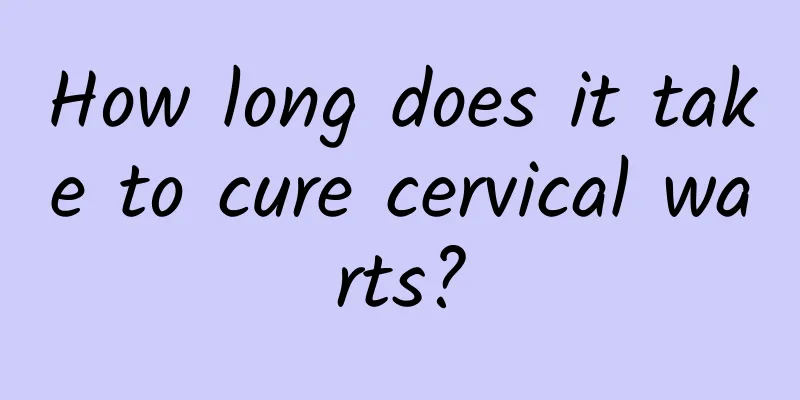Which contraceptive method is most suitable for you? What are the advantages and disadvantages of contraceptive methods?

|
In recent years, the high abortion rate among women of childbearing age has aroused widespread concern in society and has also attracted the attention of relevant national departments. There are many contraceptive methods for women to choose, such as intrauterine devices, condoms, birth control pills, etc. But many times, women at different ages do not know which contraceptive method is most suitable for them, or do not understand these methods, or even "dare not" use them. But abroad, there are professional doctors who introduce various contraceptive methods to women of childbearing age. And they guide their correct use according to personal circumstances and personalized needs. 1. Condoms Condoms are a non-drug form of preventing conception. They are mainly used to prevent sperm and egg from combining during sex and prevent pregnancy. In addition, condoms also have the function of preventing the spread of sexually transmitted diseases such as gonorrhea and AIDS, so they are also called condoms. 2. Contraceptive pills Contraceptive pills generally refer to oral contraceptive pills. There are female oral contraceptive pills and male oral contraceptive pills. The contraceptive principle is mainly to inhibit ovulation and change the cervical mucus, making it difficult for sperm to penetrate. Or reduce the production of glycogen in the uterine glands, making it difficult for the blastocyst to survive. Or change the activity of the uterus and fallopian tubes to hinder the transportation of fertilized eggs. It is a drug that prevents sperm and eggs from combining to form fertilized eggs, thereby achieving the purpose of contraception. 3. The IUD does not actually enter the uterine cavity and is not a truly functional IUD. The IUD can achieve the purpose of contraception without affecting sexual life. It is easy to put in and take out, "safe and effective", and has "mild" adverse reactions. For women before childbirth, they should choose a reliable contraceptive method that does not affect future fertility, and mainly choose a short-acting contraceptive method. The preferred method is a combined short-acting oral contraceptive. Condoms, topical spermicides and other methods can also be used, but the contraceptive effect is slightly inferior to oral contraceptives. For women after childbirth, the contraceptive period is as long as 25 years, and it is recommended to use a more convenient long-term contraceptive method. It is usually placed by a professional, and the contraceptive effect can last for 5-10 years. The main choices are progesterone-releasing intrauterine contraceptive systems (Mirena), intrauterine devices, and subcutaneous implants. Women in menopause are recommended to use intrauterine contraceptive systems (Mirena) or external medications, and avoid using contraceptive methods that increase menstrual bleeding, such as copper intrauterine devices. |
<<: What is the best method of contraception? Which contraceptive method is most suitable for you?
>>: How should women take care of themselves after painless abortion?
Recommend
What is the normal thickness of the endometrium?
What is the normal thickness of the endometrium? ...
Doctors recommend 4 treatments for adenomyosis
What is adenomyosis? Adenomyosis is a common gyne...
The harm of cervical precancerous lesions cannot be ignored
What are the hazards of cervical precancerous les...
Body Sculpting Tutorial - Quick Training for the Strongest Abs (Part 2)
Summer is coming, and I'm going to wear a bik...
Traditional mooncakes have 800 calories, and Chang'e becomes fat if she eats too much
Astronaut Armstrong returned to the moon and was ...
How to differentiate spontaneous abortion
For every pregnant mother, having a baby is proba...
Lose weight without losing energy! How to Eat Winter Melon Porridge for People with Obese Physique
As spring approaches, many people seek drastic we...
What to do if the gestational sac is filled with fluid? How much fluid should be accumulated in the gestational sac to require abortion?
The best time for abortion is 35-60 days of pregn...
How to eat well when you have endometrial tuberculosis
For patients with endometrial tuberculosis, in ad...
Super slim! 12 Fruit Diet Recipes for Weight Loss
Fresh fruits are not only delicious and refreshin...
Preparations before medical abortion
Medical abortion is now favored by many female fr...
Keep your skin healthy and lose weight in autumn! Try this weekly fruit recipe
The weather gradually becomes drier in autumn, an...
Beautiful back + beautiful legs at once! Zheng Duoyan's new elastic band body sculpting technique will tell you~
[Step 1] Exercise areas: lower back, buttocks lif...
Do you know what causes adnexitis?
What are the causes of adnexitis? Do you know abo...
Heavyweight rescue! A 230kg woman was trapped on the 5th floor and was unconscious... Medical staff and firefighters were dispatched and it took more than 3 hours to rush her to the hospital
Heavyweight rescue! In early March this year, the...









